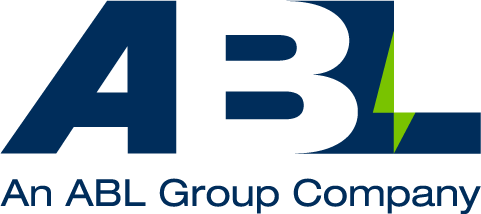What is asset integrity management?
An operating asset must perform efficiently, effectively and reliably in order to achieve a company’s objectives, and for asset-intensive industries, such as oil and gas, the process of asset integrity management is critical to ensuring this – helping to maximise production, reduce downtime, and ensure the safety of people and the environment.
In oil and gas, renewables, maritime and many other industries it has become more important than ever to ensure each component of an asset is continually performing correctly.
In this blog post, we unpackage the important topic of asset integrity management, helping you to better understand what it is, why it is important, the benefits it brings, and how to implement this as effectively as possible…
What is asset integrity management?
Managing an asset’s integrity ensures that all systems and equipment are performing optimally, to ensure operations run continually and smoothly. This also helps extend the life of an asset, to further maximise production and profitability.
Spanning disciplines such as maintenance, inventory management, process safety, operations, inspection, and more, this multifaceted operation is critical to ensuring an asset, and company’s, overall success.
Asset integrity management is required throughout the full life cycle of an asset – from the design phase right through to decommissioning, and everything in between.
Why is asset integrity management so important?
Asset integrity management is becoming even more important, with so many oil and gas assets reaching or exceeding their operational life expectancy, and the ever increasing drive to reduce costs wherever possible. This is key to extending the life of an asset safely and effectively, to increase profitability and delay expensive decommissioning costs, as well as avoiding costly downtime or repairs.
The complexity of assets within the energy sector, combined with skills shortages across the globe, makes managing integrity an enormous task – with so many companies unfortunately having to neglect or delay important tasks, such as maintenance management, risk assessments and training, and accrue a backlog of important work.
What are the benefits of asset integrity management?
1) Increased performance
In order for assets throughout the oil and gas industry to perform at their optimum level, they must be monitored, maintained and optimised throughout every stage of their life cycle. Assets can be checked and reviewed for factors such as erosion, corrosion, weakness or fatigue – all of which could compromise operations, and in significant situations, stop operations altogether.
Asset integrity management focuses on the maintenance and performance of an asset, gathering vital information that can be shared between staff, helping to identify potential issues early or notify if an asset needs to be replaced or fixed. This maximises an asset’s uptime, which ultimately increases production and profitability for the organisation.
2) Reduced risk
Asset integrity management provides teams with critical information required to make more informed decisions, and allows essential work to be conducted to reduce the chances of incidents occurring. This ultimately increases safety for both the people on the asset, as well as the environment around it, and also reduces financial risk for the organisation.
3) Greater efficiencies and reduced costs
A carefully designed and implemented asset integrity management strategy can also bring greater efficiencies to an organisation – from having a greater volume of real-time asset data and documentation available to organise and manage work, to robust processes and procedures in place to optimise planning and scheduling of asset integrity tasks. This ultimately leads to reduced costs and increased performance levels – a win-win situation.
Another way asset integrity management can bring efficiencies is in the proactive work conducted, such as proactive and preventative maintenance. This type of work is essential for avoiding costly repairs and unplanned downtime, and will save a company a significant amount of money in the long-run.
What are the key challenges of asset integrity management?
Continually monitoring asset performance and maintenance, while conducting important inspections and assessments, managing teams, planning and scheduling work, and more, the role of an asset management professional can be extremely challenging.
One of the most common issues faced is balancing the stages of an asset’s life cycle in terms of costs to the business, for example, capital expenditure, time and labour. With many assets within the oil and gas industry coming to the end of their useful life, managers face a difficult decision on how to manage the degradation of assets.
Implementing an effective asset integrity management strategy can be a difficult task as managers are often faced with numerous internal and external pressures such as fluctuating oil prices, an ageing workforce and a lack of resources.
It is inevitable that there will be a trade-off between a number of these factors, however ensuring that a robust asset integrity management system is in place will help to mitigate the impact of these trade-offs and help to align with the company’s activities.
What are the key components of an effective asset integrity management strategy?
At ABL, we have an entire division dedicated to Asset Integrity Management, with highly experienced industry experts across the globe. We focus on the core components of an asset integrity management strategy, which are key to achieving success:
- Asset management
- Asset data optimisation and migration
- Maintenance strategy optimisation
- Inventory, procurement and materials management
- Operations and maintenance support
- Safety integrity and risk management
Get in touch
If you’d like to discuss ABL’s asset and integrity management solutions and how they can support you, fill in the form below and one of our team will reach out.
